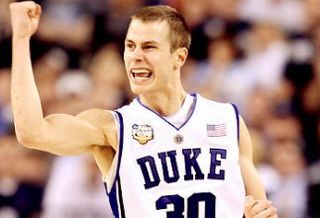Cable's Power Plays

Oprah's Mission of Discovery
Analysis: Discovery Communications CEO David Zaslav pulled off a big coup: wooing Oprah Winfrey, daytime's top ratings earner and a bona fide multimedia brand, away from a 25-year career in broadcast television. But false starts (the network was supposed to launch in 2008 and now is set to go live on Jan. 1, 2011) and sputtering personnel hires have been obstacles.
The Deal: A 50/50 joint venture between Discovery Communications and Winfrey, Discovery is obligated to provide a maximum of $65 million to OWN in 2010, Discovery CFO Brad Singer said on the company's first-quarter earnings call. Discovery spent $35 million on the channel in 2009 and has put in $15 million this quarter; it has been spending between $2 million and $3 million a month.
The Payoff: OWN will replace Discovery Health on most cable systems. The little-watched net gets 12 cents per subscriber, according to SNL Kagan. OWN, which will launch in Discovery Health's approximately 80 million homes, is said to be asking for almost 50 cents. This sharp increase would put OWN's sub fees well above those generated by the flagship Discovery channel, which gets 25 cents per sub, Kagan says. Procter & Gamble recently committed to a $100 million deal over three years for advertising and integration opportunities, which is a drop in the bucket for the packaged- goods behemoth.
TBS Snags Conan O'Brien
Analysis: After his highly publicized exit from NBC, Conan O'Brien was well on his way to landing a late-night franchise on Fox. But there were sticking points galore, not the least of which was the cost of mounting such a franchise weighed against affiliates' willingness to scrap lucrative syndicated fare in favor of O'Brien, who had yet to prove himself on The Tonight Show.

The Deal: O'Brien's five-year deal with TBS will pay him about $10 million a year. But more importantly, it gives him an ownership stake in his show, so he stands to earn much more than if he were simply the latest in a long line of hosts tapped to sit behind the same desk. It's a model that David Letterman's Worldwide Pants employs on Late Show and The Late Late Show With Craig Ferguson.
The Payoff: TBS has built a comedy franchise around Tyler Perry (House of Payne, Meet the Browns). And its foray into late-night sketch began last year with George Lopez, whose Lopez Tonight will slide to midnight when O'Brien debuts in November. Turner Entertainment chief Steve Koonin has said O'Brien fits with TBS' young, male sensibility. The average age of Lopez's viewers is 33. The broadcast network's late-night hosts have audiences that are perilously close to the motorized-wheelchair demo. Nevertheless, O'Brien has his work cut out for him. The most popular late-night hosts among men 18-34 are already well-established: Comedy Central's Jon Stewart and Stephen Colbert.
Turner Gets In on the (March) Madness
Analysis: The NCAA saw an opportunity to get a premium for its March Madness basketball franchise at a time when broadcast networks competing for retransmission cash and cable networks looking to expand their ratings prowess are willing to pay dearly for sports.

The Deal: A $3.8 billion, 14-year agreement between the NCAA, Turner and CBS Sports means that all games will be shown live across four national networks beginning in 2011-a first for the 72-year-old championship. The NCAA gets to escape from its 11-year, $6 billion deal with CBS Sports; the contract still has three years left on it. Turner is contributing more than $800 million, according to sources. The new deal gives the NCAA more than the $700 million it would get from CBS for each of the next three tournaments, upping the NCAA's take to $771 million a year. CBS Sports will retain coverage of the regional finals as well as the Final Four and the national championship game through 2015. Beginning in 2016, coverage of the regional finals will be split by CBS and Turner, with the Final Four and championship game alternating between CBS and TBS.
The Payoff: CBS Sports gets help with the bill. That's key because although March Madness generates more than $400 million in ad revenue per year, it is, like many big-time sports properties, a major loss leader. And Turner's networks, including TBS, TNT and TruTV, get to participate in one of the toprated sports franchises on television. CBS has had a lock on March Madness since 1982.
Broadcasting & Cable Newsletter
The smarter way to stay on top of broadcasting and cable industry. Sign up below
